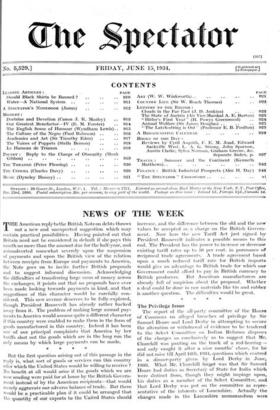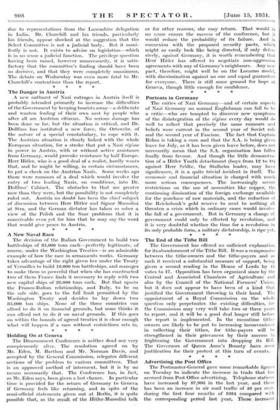The Privilege Issue The report of the all-party committee" of
the House Of Commons on alleged breaches of privilege by Sir Samuel Hoare and Lord Derby in attempting to secure the alteration or withdrawal of evidence to be tendered to the Select Committee on Indian Reforms disposes of the charges so conclusively as to suggest that Mr. Churchill was panting on the track of a red-herring- and only caught it after a nine months' chase, for he did not raise till April 16th, 1934, questions which centred in a dinner-party given by Lord Derby in June; 1933. What Mr: Churchill forgpt was that Sir -Samuel Hoare had duties as Secretary of State for India which were distinct from, though they might impinge upon; his duties as a member of the Select Committee, and that Lord Derby was put on the committee as repre= -sentative of the interests of Lancashire. Actually the "changes - Made • in the Lancashire -memorandum were due to representations from the Lancashire delegation in India. Mr. Churchill and his friends, particularly his friends, appear shocked at the suggestion that the Select Committee is not a judicial body. But it mani- festly is not. It exists to advise on legislation—which is in no sense a judicial function. The privilege question having been raised, however unnecessarily, it is satis- factory that the committee's finding should have been so decisive, and that they were completely unanimous. The debate on Wednesday was even more fatal to Mr. Churchill's contentions than the, report.

















































